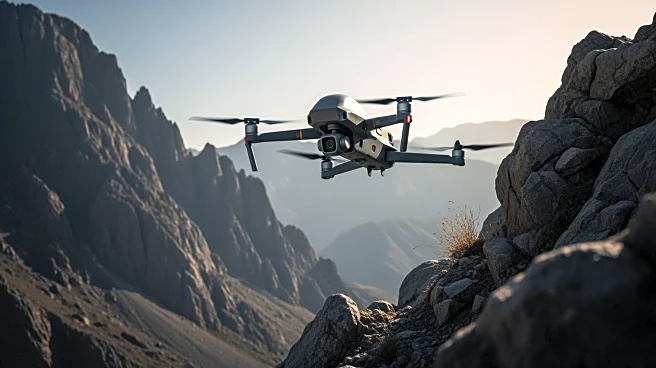What's Happening?
The Israeli Defense Forces (IDF) conducted a drone strike in southern Lebanon, targeting a workshop in the village of Biyad. According to the IDF, the strike resulted in the death of two Hezbollah operatives
who were involved in planning terrorist attacks against Israeli territory. The operatives were reportedly working to reestablish a terror infrastructure site when they were eliminated. This action is part of ongoing tensions between Israel and Hezbollah, a militant group based in Lebanon. The strike comes amid broader regional conflicts involving Israel, Gaza, and the West Bank, with various international reactions and diplomatic maneuvers unfolding.
Why It's Important?
The IDF's strike against Hezbollah operatives in Lebanon underscores the persistent security challenges faced by Israel in the region. Hezbollah, backed by Iran, poses a significant threat to Israeli security, and actions like these are part of Israel's strategy to mitigate such threats. The incident may exacerbate tensions between Israel and Lebanon, potentially impacting diplomatic relations and regional stability. Additionally, the strike highlights the complex geopolitical dynamics involving multiple stakeholders, including UN peacekeeping forces and international governments, which could influence future military and diplomatic engagements in the Middle East.
What's Next?
Following the strike, there may be increased military activity and heightened security measures along the Israel-Lebanon border. The incident could prompt responses from Hezbollah, potentially leading to retaliatory actions. International reactions, particularly from countries involved in peacekeeping efforts, may influence diplomatic discussions and negotiations aimed at de-escalating tensions. Israel's Defense Minister has indicated plans to lift the state of emergency in certain areas, which could affect civilian life and military operations in the region.
Beyond the Headlines
The strike raises questions about the legal and ethical implications of using drone technology in military operations. The targeting of individuals involved in terror activities, while aimed at ensuring national security, also poses challenges related to international law and human rights. The broader impact on civilian populations in conflict zones, as well as the role of international peacekeeping forces, remains a critical aspect of ongoing discussions about conflict resolution and humanitarian efforts in the region.










